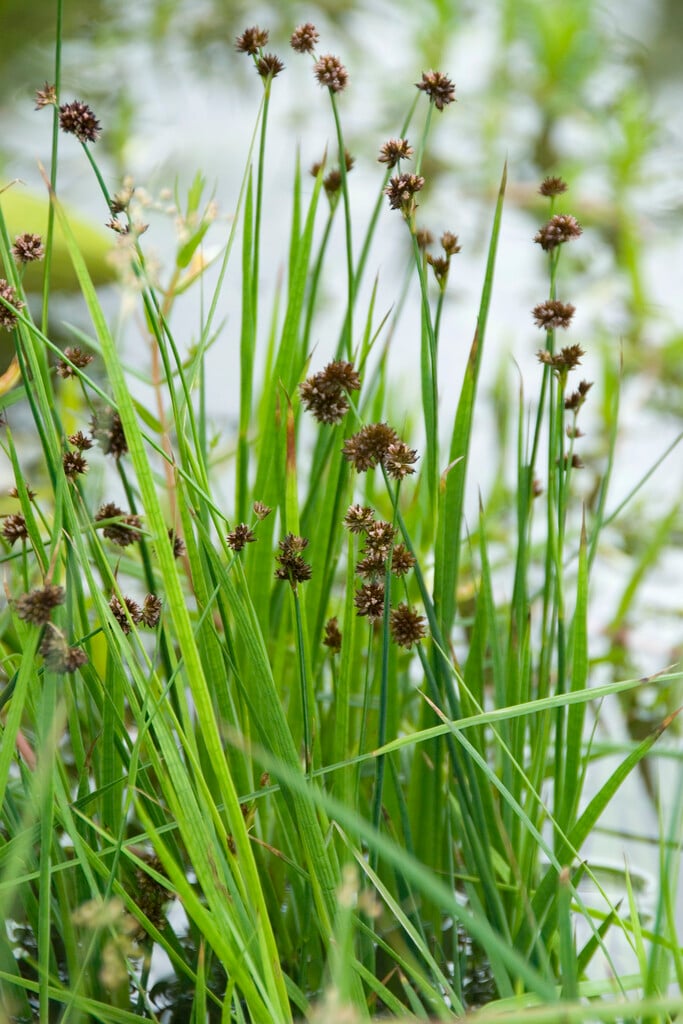Juncus ensifolius
swordleaf rush
Semi-evergreen to evergreen, rhizomatous perennial about 45cm tall, with upright stems and flat, curved, mid-green basal leaves to 25cm long. Produces globular flowerheads of small green or reddish-brown flowers in summer followed by dark brown or chestnut brown seedheads to 4mm across
Size
Ultimate height
0.1–0.5 metresTime to ultimate height
2–5 yearsUltimate spread
0.5–1 metresGrowing conditions
Moisture
Moist but well–drained, Poorly–drainedpH
AcidColour & scent
| Stem | Flower | Foliage | Fruit | |
| Spring | Green | |||
|---|---|---|---|---|
| Summer | Green Red Brown | Green | ||
| Autumn | Green | Brown | ||
| Winter | Green |
Position
- Full sun
- Partial shade
Aspect
South–facing or West–facing or East–facing
Exposure
Exposed or Sheltered Hardiness
H7Botanical details
- Family
- Juncaceae
- Native to GB / Ireland
- No
- Foliage
- Evergreen or Semi evergreen
- Habit
- Clump forming
- Genus
Juncus can be annuals, deciduous or evergreen perennials, forming clumps of narrow, often cylindrical leaves, with clusters of small brown flowers borne on leaf-like stems in summer
- Name status
Unresolved
- Plant range
- North America, Mexico, Japan
How to grow
Cultivation
Grow in permanently moist acid soil in sun or part shade
Propagation
Propagate by seed in spring or by division from mid-spring to early summer
Suggested planting locations and garden types
- Cottage and informal garden
- Patio and container plants
- Flower borders and beds
Pruning
No pruning required, tidy after flowering if necessary
Pests
Generally pest-free
Diseases
Generally disease-free
Get involved
The RHS is the UK’s gardening charity, helping people and plants to grow - nurturing a healthier, happier world, one person and one plant at a time.
